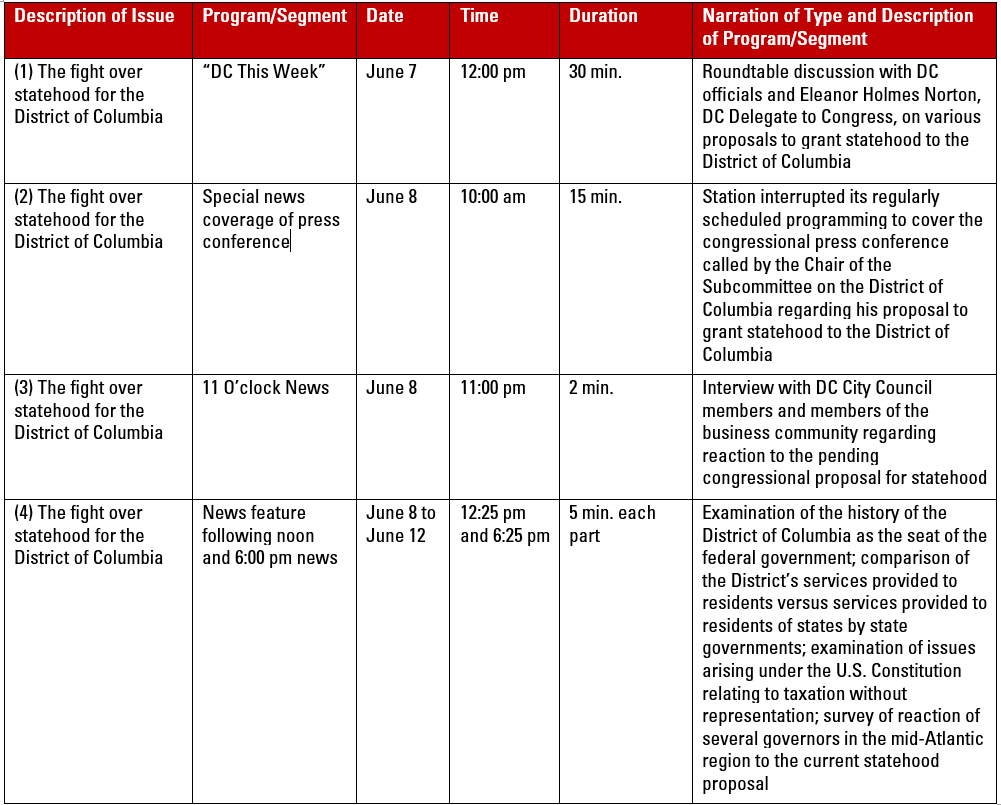Search
Published on:
Annual EEO Public File Report Deadline for Stations in California, Illinois, North Carolina, South Carolina, and Wisconsin
This Pillsbury Broadcast Station Advisory is directed to radio and television stations in the areas noted above, and highlights upcoming deadlines for compliance with the FCC’s EEO Rule.
August 1 is the deadline for broadcast stations licensed to communities in California, Illinois, North Carolina, South Carolina, and Wisconsin to place their Annual EEO Public File Report in their Public Inspection File and post the report on their station website. In addition, certain of these stations, as detailed below, must submit their two most recent EEO Public File Reports along with FCC Form 2100, Schedule 396 as part of their license renewal application submissions due by August 3.
Under the FCC’s EEO Rule, all radio and television station employment units (“SEUs”), regardless of staff size, must afford equal opportunity to all qualified persons and practice nondiscrimination in employment.
In addition, those SEUs with five or more full-time employees (“Nonexempt SEUs”) must also comply with the FCC’s three-prong outreach requirements. Specifically, Nonexempt SEUs must (i) broadly and inclusively disseminate information about every full-time job opening, except in exigent circumstances,[1] (ii) send notifications of full-time job vacancies to referral organizations that have requested such notification, and (iii) earn a certain minimum number of EEO credits, based on participation in various non-vacancy-specific outreach initiatives (“Menu Options”) suggested by the FCC, during each of the two-year segments (four segments total) that comprise a station’s eight-year license term. These Menu Option initiatives include, for example, sponsoring job fairs, participating in job fairs, and having an internship program.
Nonexempt SEUs must prepare and place their Annual EEO Public File Report in the Public Inspection Files and on the websites of all stations comprising the SEU (if they have a website) by the anniversary date of the filing deadline for that station’s license renewal application. The Annual EEO Public File Report summarizes the SEU’s EEO activities during the previous 12 months, and the licensee must maintain adequate records to document those activities. As discussed below, nonexempt SEUs must submit to the FCC their two most recent Annual EEO Public File Reports when they file their license renewal applications.
For a detailed description of the EEO Rule and practical assistance in preparing a compliance plan, broadcasters should consult The FCC’s Equal Employment Opportunity Rules and Policies – A Guide for Broadcasters published by Pillsbury’s Communications Practice Group.
Deadline for the Annual EEO Public File Report for Nonexempt Radio and Television SEUs
Consistent with the above, August 1, 2020 is the date by which Nonexempt SEUs of radio and television stations licensed to communities in the states identified above, including Class A television stations, must (i) place their Annual EEO Public File Report in the Public Inspection Files of all stations comprising the SEU, and (ii) post the Report on the websites, if any, of those stations. LPTV stations are also subject to the broadcast EEO Rule, even though LPTV stations are not required to maintain a Public Inspection File. Instead, these stations must maintain a “station records” file containing the station’s authorization and other official documents and must make it available to an FCC inspector upon request. Therefore, if an LPTV station has five or more full-time employees, or is otherwise part of a Nonexempt SEU, it must prepare an Annual EEO Public File Report and place it in the station records file.
These Reports will cover the period from August 1, 2019 through July 31, 2020. However, Nonexempt SEUs may “cut off” the reporting period up to ten days before July 31, so long as they begin the next annual reporting period on the day after the cut-off date used in the immediately preceding Report. For example, if the Nonexempt SEU uses the period August 1, 2019 through July 22, 2020 for this year’s report (cutting it off up to ten days prior to July 31, 2020), then next year, the Nonexempt SEU must use a period beginning July 23, 2020 for its report. Continue reading →
 Comm Law Center
Comm Law Center


